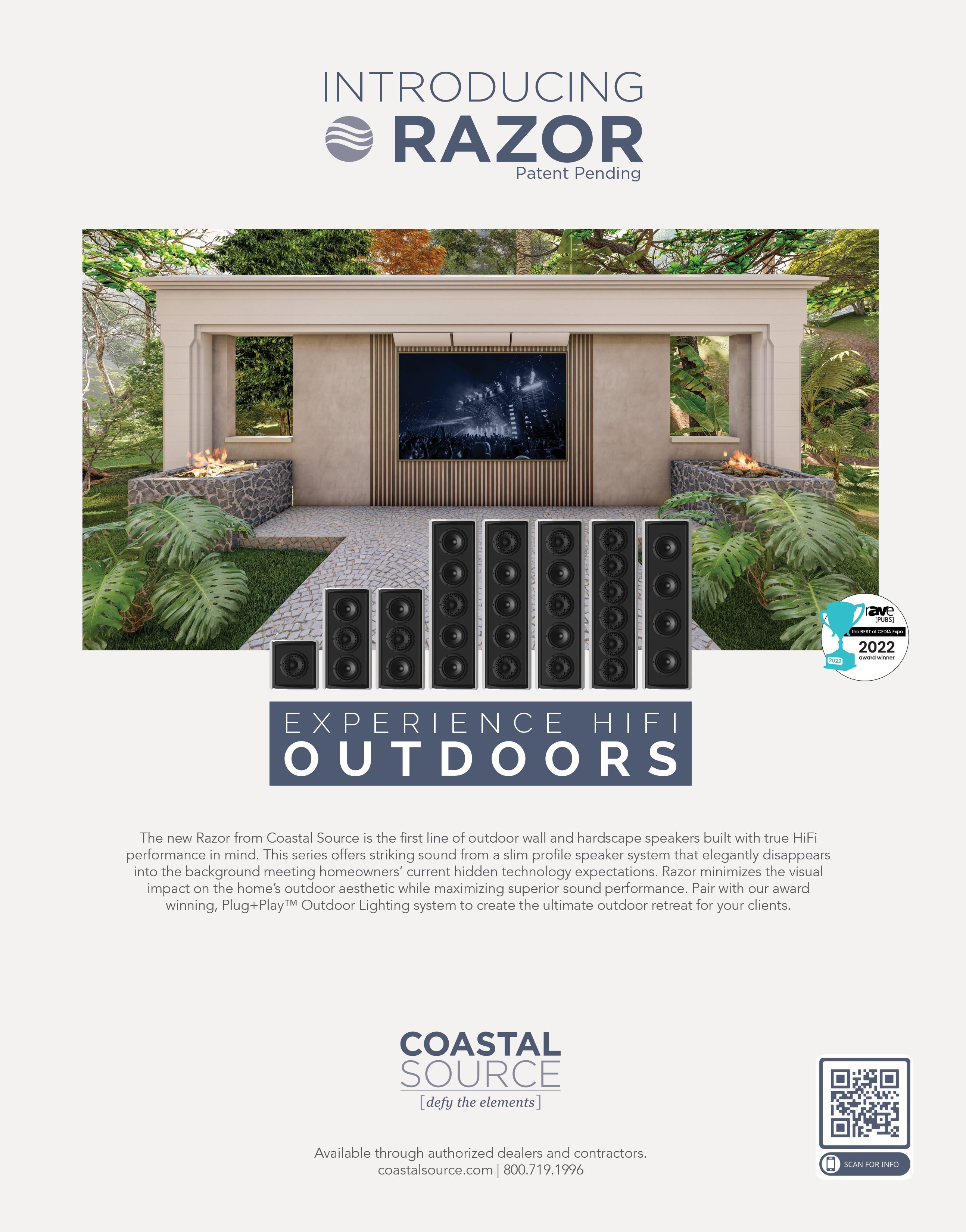
4 minute read
Day One Design: Heading in the Right Direction

Angelica & Matt Norton
Day One Design: Heading in the Right Direction
Landscape Architect Angelica Norton & Architect Matt Norton of Open Envelope Studio Tell Us About Their Design Process to Ensure the Job Runs Smoothly From Day One
Design consultations are tough, because in a short amount of time you have to establish yourself as an expert, show that you’re creative, organized and likable, set the framework for a respectful working relationship—and get the job. At Open Envelope Studio, we feel like we have a system in place that has a high track record for moving forward with clients but, more importantly, filtering who would be a good fit for our design process.
The first step is our consultation form. We have every prospective client, even if they’ve called to set up a consultation, fill out a form online. This ensures they’ve looked at examples of projects on our online portfolio, gives us pertinent information about their project and helps us stay organized and not lose track of client information. It also gets the client thinking about their wants and needs. And, lastly, they click a box that says they agree to pay our consultation fee, which in and of itself ensures the likelihood that clients are the type who value professional design.
When visiting the client’s house, we immediately set expectations of how the consultation will unfold to establish we’re leading the process and for the consult to move forward in a predictable way.
In our particular narrative, phase one is gathering information. Here is the chance to glean any and all info we can to know what we’re designing, who we’re designing for, what they need and their tastes. We encourage a stream of consciousness about all of the things that do and don’t work in their spaces. There is no wrong answer. This shows the client that we are capable of being good listeners and we value their input.
The next phase of the consultation is a chance to get the client excited about what their yard could be and by giving solutions they haven’t thought of. We ask for clarifications and get to the “why” on certain statements they made. This is a great time to take mental notes about what photos should be in your portfolio for further explanation. Don’t be afraid to get a bit technical here with municipal codes or best practices. It’s good to show your aptitude, but be sure to stay solution-oriented; clients can become overwhelmed if they hear a laundry list of things the city won’t allow them to do.
At this point, we head inside to go over process using our portfolio. Having a printed portfolio is incredibly important as it’s been curated to facilitate our consultation narrative. We find examples of design opportunities discussed in the walkthrough. It is critical to have professional photos so that your work sells itself. Think quality over quantity here. Our portfolio contains examples of both design proposals and estimates to rip the bandaid off about price, so it’s a handy tool to organically dive into the tough conversation of budgets vs. design scope.
The last part of the consultation phase is the follow-up email. It includes all of our notes, which makes the client feel heard, but also is a great reference for when we get to their design as we move through our queue so scope doesn’t fall through the cracks. We attach a design proposal and have a link to a post-consultation form, which gives the client a chance to add anything we may have missed—or if the family talked about anything after the consult—and allows for a categorization of nice-to-have wants and must-have needs.
Our consultation process as a whole establishes that not only are we creative enough to envision an emotionally impactful design, but also that we are professional enough to organize all of the facets of a complex project. We think you’ll find that putting thought into the system that surrounds every step of onboarding can empower you beyond the hard sell to make a genuine connection with people, which is the foundation of a healthy project.











